Op-ed: One hundred years of agriculture and resilience
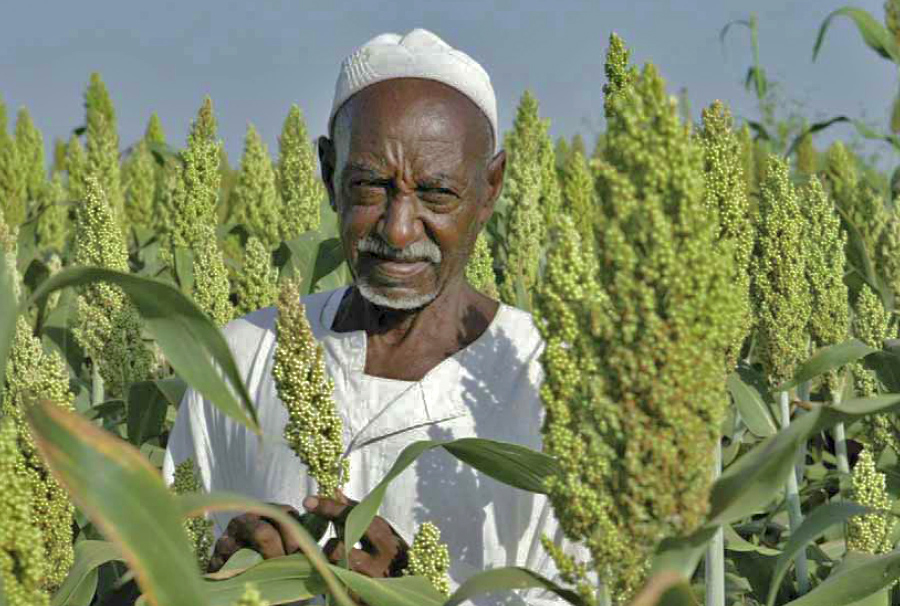
A farmer in a field of sorghum in the Al-Jazeera / El Gezira Agricultural Scheme (File photo: FAO)
Al-Jazeera and Al-Managil: The story of a nation grown from the soil and shaped by development
By: Hussein Saad for African Centre for Justice and Peace Studies (ACJPS)
In the heart of Sudan, across thousands of fertile acres stretching between the Blue and White Niles, the grand agricultural project, Al-Jazeera and Al-Managil, was born a hundred years ago. It was not merely an agricultural project but a national, economic, and humanitarian dream that transformed the Sudanese countryside. It reshaped the relationship between land, people, and the state. This colossal project was established in the 1920s amid major economic transformations in the region.
Over the years, it became one of the largest irrigated agricultural projects in Africa and the world. It served as a cornerstone of the Sudanese economy for decades, a source of pride for generations of farmers, workers, engineers, and administrators who contributed to its construction and development. The establishment of the Al-Jazeera and Al-Managil project was not just an agricultural investment; it marked the beginning of an unprecedented economic and social renaissance in modern Sudan. The project provided wide employment opportunities and a source of livelihood for the state’s population and migrant labor from other states. It contributed to improving infrastructure, including railways, irrigation channels, schools, and health centers, and created stable communities based on production and cooperation. The project also acted as a catalyst for the rise of the agricultural middle class, playing a pivotal role in the national movement, labor unions, and social and cultural transformations in Sudan.
The Sudanese Renaissance Begins Here:
As the centennial anniversary of this historic project approaches, the country stands at a moment of reflection and review. It’s not just about celebrating the legacy of the past but evaluating the present, and charting the course for the future. The project began with ambitious visions to produce cotton and feed the British textile industries, but over the years, it evolved into a hub for local expertise and a platform for developmental experiments. It stood witness to the changing economic policies, management challenges, and planning failures. Celebrating the centenary of the Al-Jazeera and Al-Managil project is not just an occasion to honor those who cultivated and nurtured the land but a sincere call to renew national commitment toward rehabilitating the project and ensuring its sustainability amidst environmental, economic, and political fluctuations. At this historical moment, it becomes everyone’s duty – from the state, society, and the private sector – to reconsider the significance of this project, which has been and remains capable of being the pulsating heart of Sudan. It is a fundamental pillar for food security and a beacon for fair rural development. One hundred years have passed, but the roots of the project are still deeply embedded in the earth, as in the hearts of the Sudanese people. Between what the ancestors sowed and the dreams of the descendants, the Al-Jazeera and Al-Managil project is more than just an agricultural venture; it symbolizes the resilience of the Sudanese people and their ability to transform mud and water into civilization and prosperity. As a hundred years pass on this historic project, memories intertwine with challenges. Voices rise mixed with pain and hope, between the years of glory when the project enriched the state treasury with foreign currency and supplied the world with Sudanese high- quality cotton, and the years of deterioration and ruin that cast shadows over infrastructure and production. A grand case is unveiled that encapsulates the journey of a nation with its successes and failures.
In the Footsteps of Ancestors:
Expected to begin this month is the centennial celebration of the establishment of the Al-Jazeera and Al- Managil project, organized by the Sudanese Economic site in collaboration with the Sudanese American Center for Economic Research and Studies under the slogan ‘Al-Jazeera Project: Legacy and Direction after a Hundred Years of Progress.’ The organizing committee has set the days of July 18 – 19 – 25 for the event. The celebration will be attended by Abdullah Hamdouk and representatives of landowners. The event will feature a variety of experts and researchers presenting many papers, such as agricultural technology and its potential use in the project by Dr. Abdullah Al Khidir. A paper on the contribution of arts to cultural and social coexistence after the war by Professor Afif Ismail. A paper on productivity enhancement programs and agricultural guidance in project development by Dr. Babiker Hamid. A paper on project irrigation management in the past, present, and future and solutions by Dr. Sayf al-Din Hamid. A paper on social responsibility in agriculture, using the Al-Jazeera project as a model by Dr. Bakheeta Mohamed Osman. A paper on how the Al-Jazeera project transitioned its inhabitants from a tribal and racial society to a civil society by Dr. Abdel Salam Nour al-Din, a paper on cooperative movement by Professor Mohamed Abdul Wahab Al-Atibi. A paper on animal integration in the agricultural cycle by Dr. Taj Mahjoub. A paper on land ownership and how to protect it by Dr. Salman Mohamed Ahmed Salman. A paper on financing challenges and reconstruction in Sudan by Professor Omar Saeed Ahmed. A paper on financing and its role in project development by Dr. Hamed Al-Amin.
On the last day of the celebration, Jafar Mahamadeen will present a paper on agricultural workers, the residents of Kanabi, and their issues, while journalist Hussein Saad will present a paper on the media in the Al-Jazeera project between awareness and shortcomings. Professor Taj al-Sir al-Malik will present a paper on the impact of the project on cultural and creative development in Al-Jazeera, and Dr. Mohamed El Qadi will present a paper on chemical pesticides in the project – problems and possible solutions. Dr. Sadiq Abdel Hadi will present a paper on institutional reform issues in the project.
Will the Land Regain Its Voice?
The Al-Jazeera and Al-Managil project has been a true reflection of the state’s policies towards agriculture and rural development. During its prosperous years, it stood as a symbol of sound planning and smart partnership between the government and farmers. In its weaker years, it revealed the depth of administrative crises and the absence of strategic vision. Therefore, discussing the centenary of the project is incomplete without reflecting on the lessons of the past that must be drawn and the structural challenges that still exist, such as insufficient funding, the declining role of research institutions, deteriorating irrigation channels, and the absence of justice in managing agricultural revenues. Despite all the setbacks, the spirit of the project remains alive. The land is still fertile, and the Sudanese farmer still carries the same determination that made the project a national icon. With the growing calls today to rehabilitate the project on fair scientific and economic foundations. There is a pressing need for a national revitalization project that restores the status of Al-Jazeera and Al-Managil, not just as an economic resource, but as a living laboratory for a comprehensive development experience that considers the human dimension, achieves social justice, and invests in human and environmental capital. Celebrating the centenary of the project, then, is not just a symbolic ceremony or a rhetorical occasion but a strategic opportunity to formulate a new covenant between the state and the agricultural community, a covenant based on empowerment, not marginalization, partnership, not exploitation, and enlightened vision, not fragmented policies. The time has come to raise the banners of genuine agricultural reform and to restore Al-Jazeera and Al-Managil to their pioneering role, not only in production but also in leading major transformations towards justice, development, and social peace. This centenary must be recorded in the memory of the nation, not only as history but as the birth of a new era for a great project… created by the Sudanese people and deserving to be the beacon of Sudan’s future renaissance.
Conclusion:
In the centenary of the Al-Jazeera and Al-Managil project, we cannot afford empty celebrations or the luxury of glorifying the past without correcting the path of the present and envisioning the future. This land, watered by the tears of farmers and the sweat of workers, does not deserve to wither under neglect and poor policies. Reviving the spirit of this project is reviving the spirit of Sudan itself. There is no real development without productive agriculture, no stability without justice in resource distribution, and no renaissance without true empowerment of rural areas and their people. This centenary represents a unifying national call: to rethink our priorities, to give agriculture its due as a development engine, and to restore the farmer’s status as an economic actor rather than just a subordinate. Perhaps this historical occasion will be the spark for a new beginning. Where we plant hope as our ancestors planted cotton, and irrigate it with knowledge and determination as they watered the land with mud and the Nile, so let our celebration of the centenary be a promise to future generations: that the Al-Jazeera and Al-Managil project will not only be a memory of a glorious past but a promising project for the future, carrying in its soil the seeds of justice and in its waters the river of life.
Disclaimer: The views and opinions expressed in this article, republished here by permission, are those of the contributing author or media and do not necessarily reflect the position of Radio Dabanga.
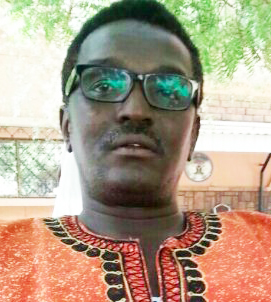
The African Centre for Justice and Peace Studies (ACJPS) is a non-profit, non-governmental organisation working to monitor and promote respect for human rights and legal reform in Sudan. ACJPS has a vision of a Sudan where all people can live and prosper free from fear and want in a state committed to justice, equality and peace (Source: ACJPS)







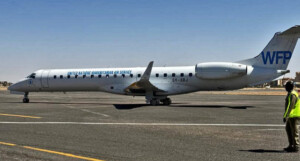
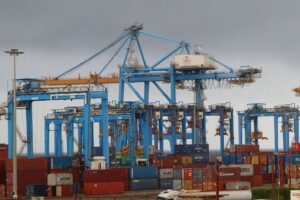
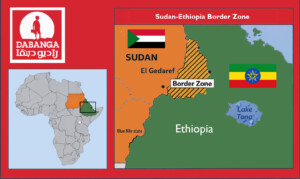

 and then
and then